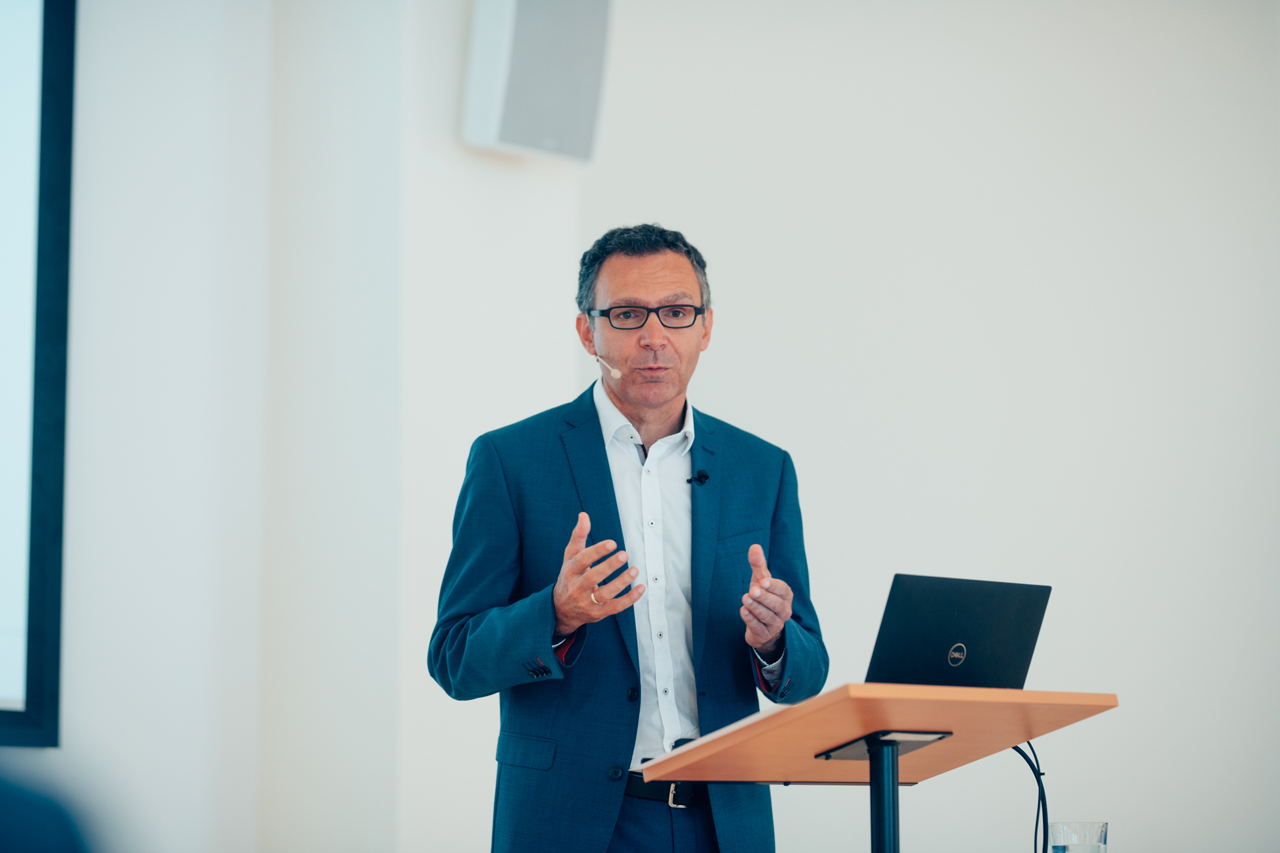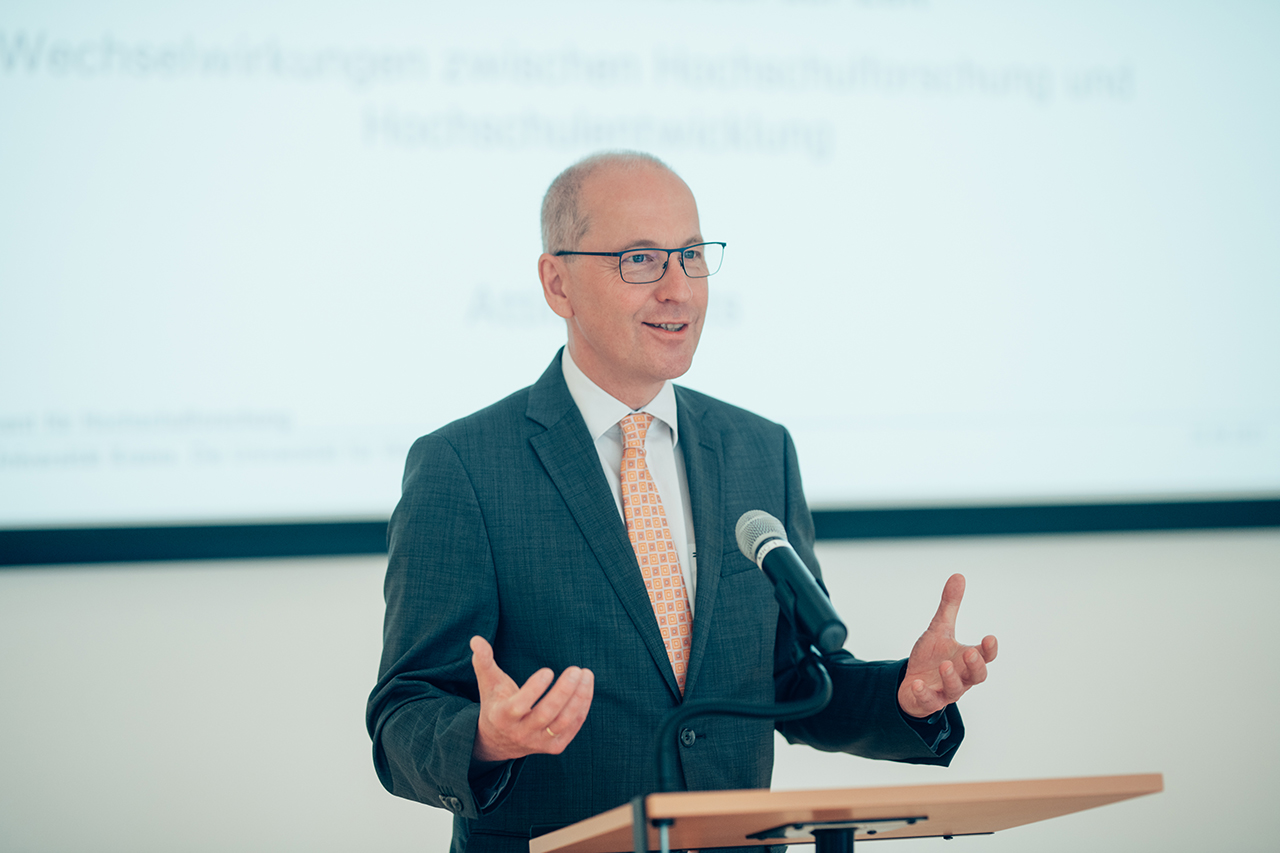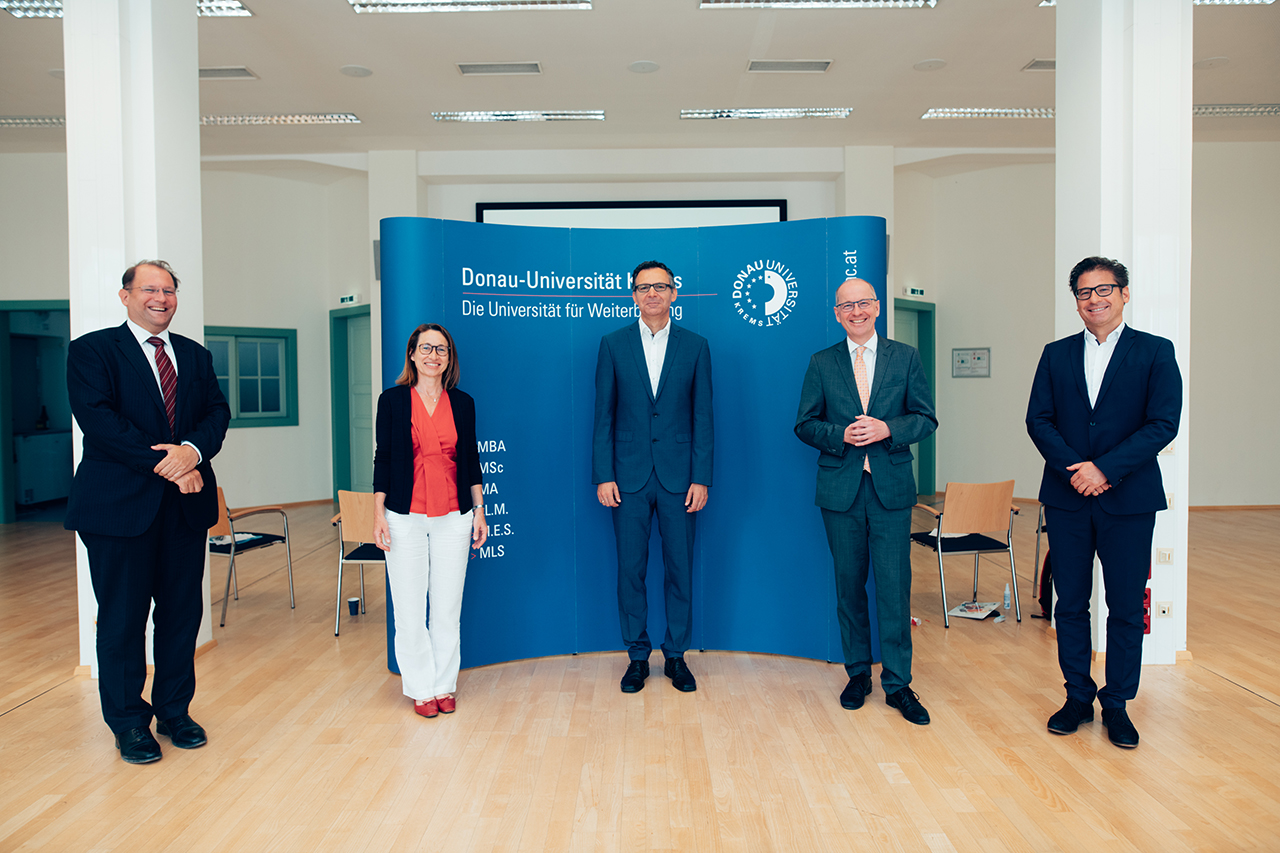On 22 June 2021, Attila Pausits dealt in the course of his inaugural lecture with "Higher Education Institutions in Changing Times: Interactions between Higher Education Research and Higher Education Development". According to § 98 UG 2002 Pausits was appointed as university professor at the University for Continuing Education Krems on 1 October 2020, where he took the position Head of the newly founded Department of Higher Education Research.
Friedrich Faulhammer, Rector of the University, underlined the importance of the professorship Attila Pausits holds, which is the only professorship for higher education research and development in Austria.
At first, university researcher Pausits looked at the historical dimension of the university as an institution, with its history beginning at the University of Bologna in 1088, and its five core tasks, which are divided into three areas that are still valid today: academic career preparation and general education correspond to teaching. Research and the promotion of young scholars are the second area. Contributions to define societal situations form the Responsible Science/Third Mission.
The University as a Research Object
There a large number of constructivist models of universities, hence the challenge to approach the university as an institution from a theoretical point of view. Universities were described, for example, as a "loosely coupled system" by Karl E. Weick in the 1960s, as a "professional bureaucracy" by Henry Mintzberg in the late 1970s, who in turn built on ideas of Max Weber, and as a "multiversity" by Clark Kerr in the 1980s. Burton R. Clark developed the idea of the "entrepreneurial university" at the end of the 1990s.
Levels of Higher Education Research
The beginnings of higher education research date back to the United States in the 1940s. In Europe, the expansion of higher education and student protests did not lead to the establishment of higher education research until the 1960s/70s. Due to the variety of social functions and university models, it is not surprising that there is no such thing as the higher education development. Instead, it is necessary to differentiate between system, institutions and actors or, more generally, between macro, meso and micro levels. Pausits exemplified this idea on the example of continuing education in higher education. On the system level, competition, control and adaptation are the main issues. At the institutional level, the creation of free space and strategic positioning is needed, whereby the market, different models, formats, etc. have to be considered. And at the individual level, a further distinction can be made between the value to students in terms of their degree and acquired competencies, and the value to lecturers, where career considerations, the benefits of knowledge transfer, and professional variety come into play.
Universities scrutinizing their own research
The university research's broad range of topics requires a number of methods and epistemological approaches, both of which are ensured by interdisciplinary and transdisciplinary work. Knowledge from sociology, organizational science and management science, among others, is employed here. In this context, it is important not to forget that universities in higher education research are simultaneously actors and affected parties and therefore have to deal with the tension between the two. On the one hand, this leads to self-objectification, as Prof Heiner Rindermann pointed out, on the other hand, there is the danger of overestimating oneself.
University research proves its high relevance with the aim to conduct research that goes beyond the zeitgeist of higher education discourses and to look into the future in order to find answers challenges evoke by anticipating problems. Thus, in the area of the Third Mission, research was conducted on indicators and descriptors even when measurability was not yet an issue. By the time this issue became relevant, the OECD was already able to draw on and adopt research findings.
About
Attila Pausits studied business administration at the University of Eichstätt-Ingolstadt, earned his doctorate at the University of Flensburg and habilitated in economics and organizational sciences at the University of Sopron, formerly West Hungarian University, in 2015.
Pausits' functions reflect internationality and networking. The higher education researcher is chairman of the board of the European Higher Education Society (EAIR), co-founder of the Austrian Network for Higher Education Research, on the board of the Austrian University Continuing Education Network, and coordinator of the Erasmus Mundus Master Program "Research and Innovation in Higher Education, MSc (MARIHE)." In addition to research projects on learning and teaching tools at universities in Africa, Third Mission at universities and quality enhancement of university teaching, Pausits is currently involved in the Erasmus+ project Steering Higher Education for Community Engagement (SHEFCE), leads a research project on working conditions in science in Austria and is study author of the recently published study "Distance Learning at Universities in Austria".
%20Walter%20Skokanitsch.jpg)
%20Walter%20Skokanitsch-20210622-104213.jpg)
%20Walter%20Skokanitsch.jpg)
%20Walter%20Skokanitsch.jpg)
